
World
12:19, 20-Jul-2018
BRICS 2018: South Africa offers a continental reach for the bloc
Updated
11:52, 23-Jul-2018
By Abhishek G Bhaya
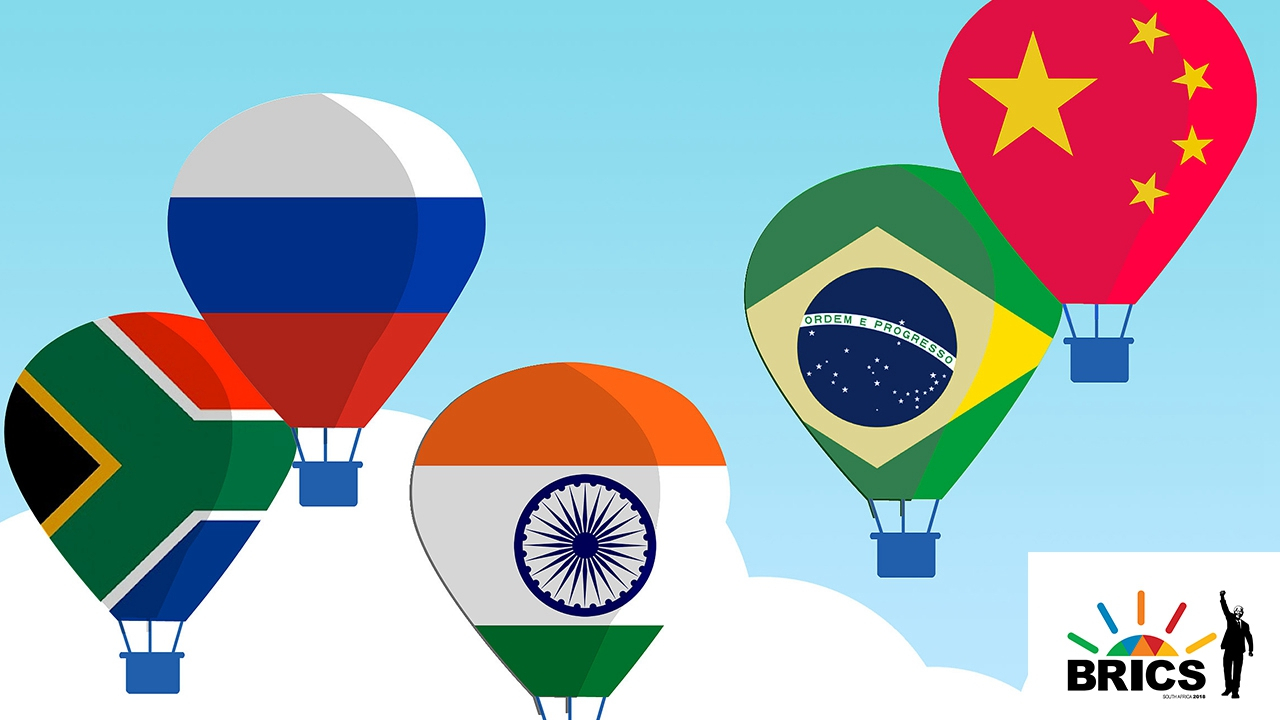
This year’s 10th annual BRICS Summit in Johannesburg from July 25 to 27 will be the second time South Africa is hosting the event after a gap of five years. The African country hosted the fifth summit in Durban in 2013, just two years after it had officially joined the BRICS grouping of the world’s major emerging economies in 2011.
South Africa has come a long way since, providing BRICS an enduring and much-needed reach across the continent of Africa. The bloc which was founded in 2009 as BRIC with four initial members – Brazil, Russia, India and China – expanded that acronym to BRICS following South Africa’s inclusion.
At the time though, many analysts – including British economist Jim O’Neill who coined the term BRIC in 2001, to symbolize countries that he felt would become economic powerhouses in the future – weren’t quite convinced about South Africa’s addition to the bloc.

Related story: South Africa to celebrate ‘Mandela Spirit’ at Johannesburg BRICS Summit
The coming together of the four BRIC nations under a single umbrella organization was seen by many observers as a move aimed at posing an imminent challenge to the West’s domination in the global economy. And O’Neill, like other critics, felt South Africa was simply too small to join the group of the world’s top four major emerging markets.
The South African economy and population are no doubt smaller in scale when compared with the other BRICS members. Even today, according to World Bank’s 2017 figures, South Africa ranks 32nd in the list of global economies, while China is the world's second largest economy, India is sixth, Brazil eighth and Russia the eleventh.
Many analysts, including O'Neill, had felt that Nigeria – with the biggest economy and population in Africa – had a greater chance to be a part of the group.
'Voice of Africa'
However South Africa and other BRICS members have maintained that it is the country’s strategic importance that mattered and not simply its size. As the only African country in the bloc, South Africa is seen as representing the voice of the continent.
“We are in BRICS because they (other members of the bloc) needed this continental reach. They found us to be a country that historically has run an independent foreign policy, that champions the interests not only of our country but of our continent, and in world affairs we champion international rule of law, democracy and human rights,” South Africa’s former Minister of International Relations and Cooperation, Maite Nkoana-Mashabane said in defense of her country’s inclusion in the grouping.
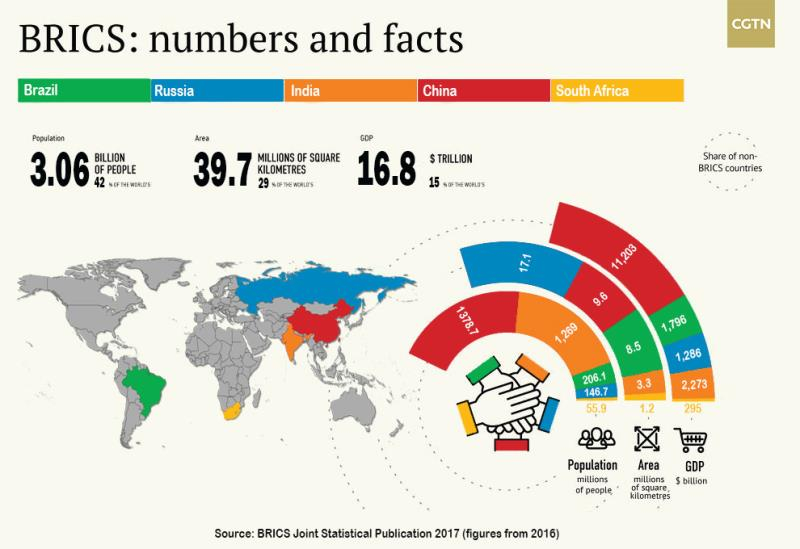
In an interview to Daily Maverick newspaper ahead of the 2013 BRICS Summit in Durban, Nkoana-Mashabane also highlighted how South Africa witnessed rapid changes within two years of joining BRICS.
“When we applied to join BRICS, the overall trade deficit between us and other members of this forum was about 57 billion US dollars. In the short time since we have been members of BRICS, it has come down from 57 billion to 24 billion US dollars,” she said.
O’Neill was soon compelled to change his views on South Africa. From dismissing the country as an odd ball in BRICS, the former Goldman Sachs chief economist admitted as early as in 2013 that South Africa “has a big role to play [within the BRICS] and probably quite a responsibility in being some kind of genuine gateway to helping the rest of Africa become more successful.”
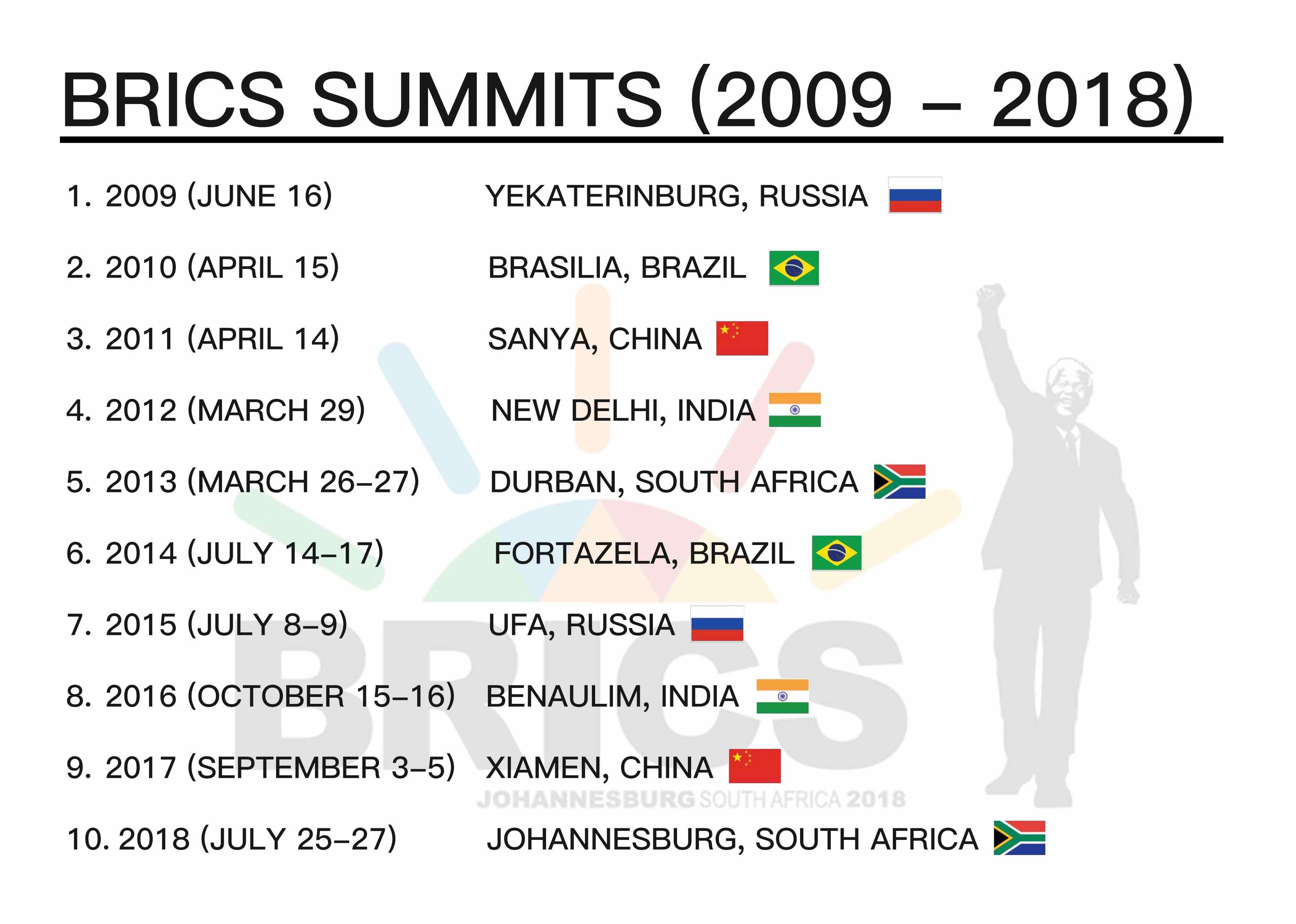
Over the years, South Africa as a BRICS member has enjoyed trade and diplomatic benefits both regionally and internationally and hopes to further use the multilateral platform to deal with challenges such as unemployment, poverty and inequality, according to South Africa’s BRICS Sherpa (special emissary) Anil Sooklal.
While acknowledging South Africa’s economic transformation and stability in governance, O’Neill hoped the country will help other African nations to achieve similar development.
“If South Africa could also help to lead the rest of the continent to reach its own standards where these are high, Africa would be on an accelerated path to greater economic might. By exploring cross-border expansion in trade and infrastructure, as well as improvements in domestic productivity, South Africa will have more than justified its role as a member of BRICS,” he remarked.
Trading within BRICS
Also, ahead of last year’s BRICS Summit in Chinese city of Xiamen, O’Neill affirmed that the economic performance of BRICS has exceeded his expectations. "Sixteen years later the BRICS share of global GDP (gross domestic product) is bigger than every scenario I projected," the economist said.
South Africa’s trade with other BRICS nations has more than doubled from 15 billion US dollars in 2010 to 31.2 billion US dollars in 2016. China has been South Africa’s top ranking export destination as well as import supplier since 2009.
According to data released by South Africa’s Department of Trade and Industry, the country’s exports to other BRICS partners in 2016 totaled 156 billion rand (11.6 billion US dollars), while imports from the four countries came to 273 billion rand (20.2 billion US dollars).
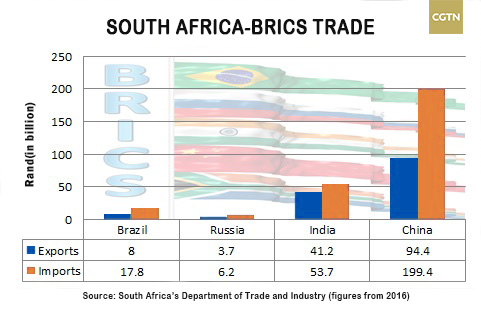
The intra-BRICS exports amounted to 4 trillion rand (301 billion US dollars) in 2016, of which China accounted for 40 percent, India 27 percent, Russia 16 percent, Brazil 10 percent, and South Africa 7 percent.
In 2015-16 financial year, intra-BRICS investment amounted to 554 billion rand (41.1 billion US dollars), of which South Africa received 34.5 billion rand (22.6 billion US dollars) from investors in these countries. In return, the African country made investments worth 22.6 billion rand (1.7 billion US dollars) in the BRICS countries.
Emphasizing on the constructive role South Africa has played within the BRICS, Sooklal reminded how the foundation for the BRICS Bank was laid at the Durban summit in 2013.
“This summit saw the creation of the BRICS Business Council and also initiated the negotiations for the setting up of the BRICS Bank, which was later established as the primary outcome of the 2014 BRICS Summit in Fortaleza, Brazil under the name ‘New Development Bank’ (NDB),” Sooklal told a BRICS roundtable held in Pretoria earlier this year.
BRICS Plus, Outreach
The South African Sherpa also said that his country was the first to initiate the BRICS outreach mechanism at the Durban summit, which was later continued in successive summits by the other hosts. This was in line with South Africa’s role as the gateway to the rest of the continent.
South Africa “hosted on the margins of the e-Thekwini (Durban) Summit, a BRICS-African Leaders Dialogue Forum Retreat that was attended by 12 African leaders, representing the AU, New Partnership for Africa’s Development (NEPAD) and the eight AU Regional Economic Communities (RECs),” Sooklal said.
“This model has since been replicated by subsequent hosts and South Africa hopes to build further on this initiative in this current chairship,” he added.
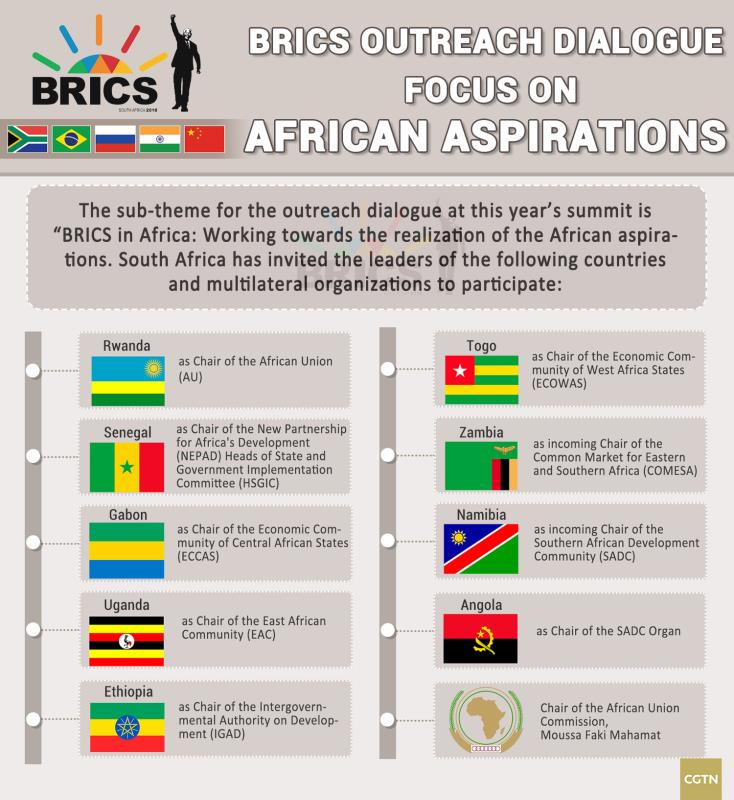
This year too South Africa has invited the leaders of AU, NEPAD and the RECs of Africa to attend the BRICS outreach dialogue on the sidelines of the summit. The theme for this dialogue is “BRICS in Africa: Working towards the realization of the African aspirations.”
Sooklal said that China ushered in the second “Golden Decade” of BRICS cooperation when it hosted the bloc’s 9th annual summit last September in Xiamen. He stressed that the Xiamen Declaration is widely perceived as a balanced and reflective document, indicative of a positive spirit of intra-BRICS collaboration.
“South Africa has undertaken to closely align its chairship of the BRICS Forum in 2018 with that of China in 2017 so as to establish maximum synergy and continuity for BRICS endeavors between the successive summits,” he said.
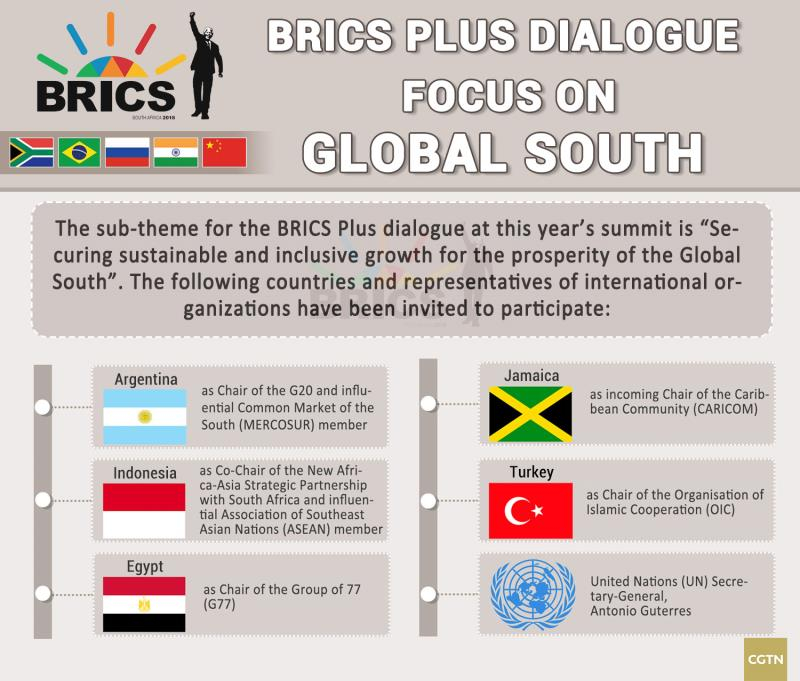
“We are also considering the BRICS Plus cooperation initiative that was introduced during China’s tenure [last year], for the purpose of further enhancing cooperation with the global community, as well as to take forward the relationship with Africa,” Sooklal said.
The BRICS Pus initiative, introduced last year, entails a dialogue with emerging markets and developing countries. This year’s BRICS Plus dialogue will have the theme of “Securing sustainable and inclusive growth for the prosperity of the Global South.” Many international organizations including the United Nations, ASEAN, OIC, G20, G77 and CARICOM will attend the dialogue.
11720km

SITEMAP
Copyright © 2018 CGTN. Beijing ICP prepared NO.16065310-3
Copyright © 2018 CGTN. Beijing ICP prepared NO.16065310-3